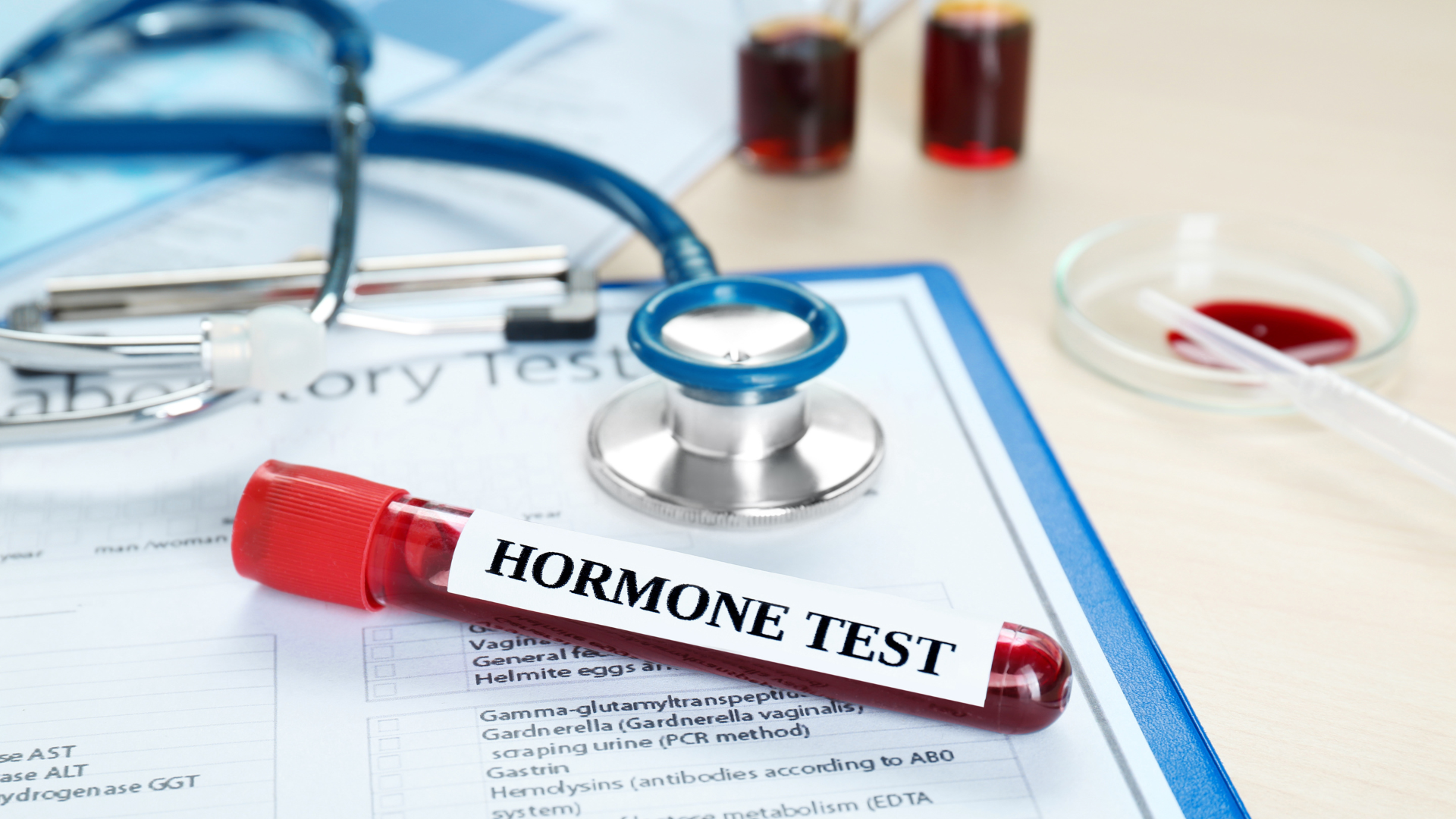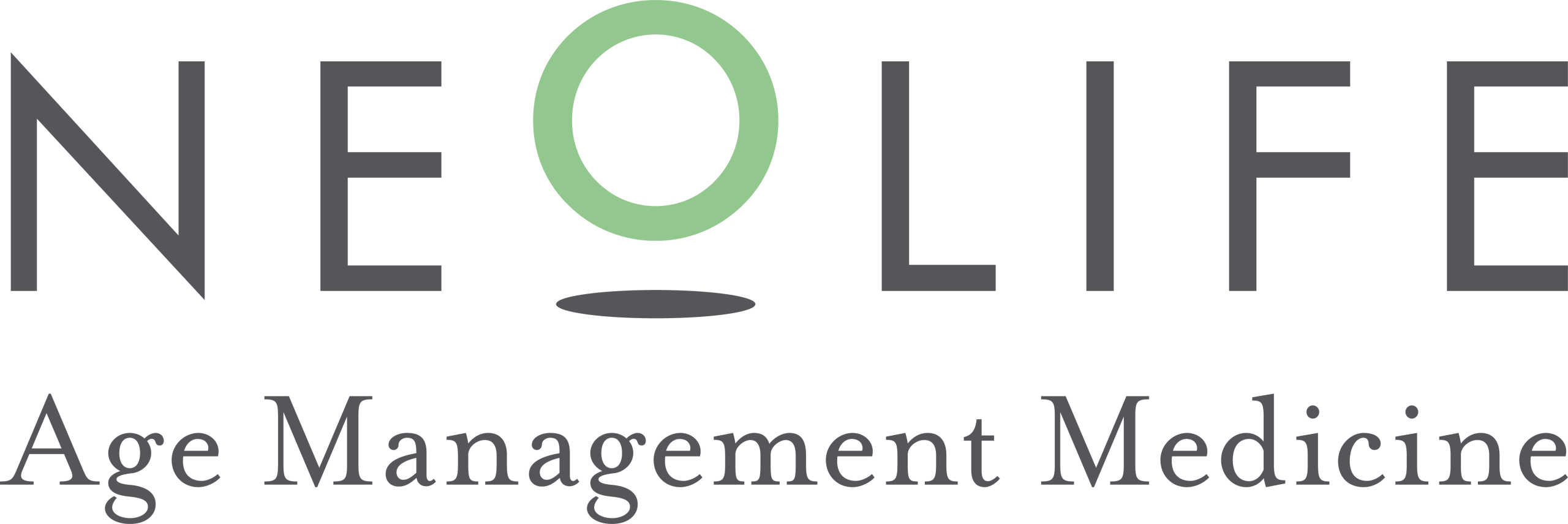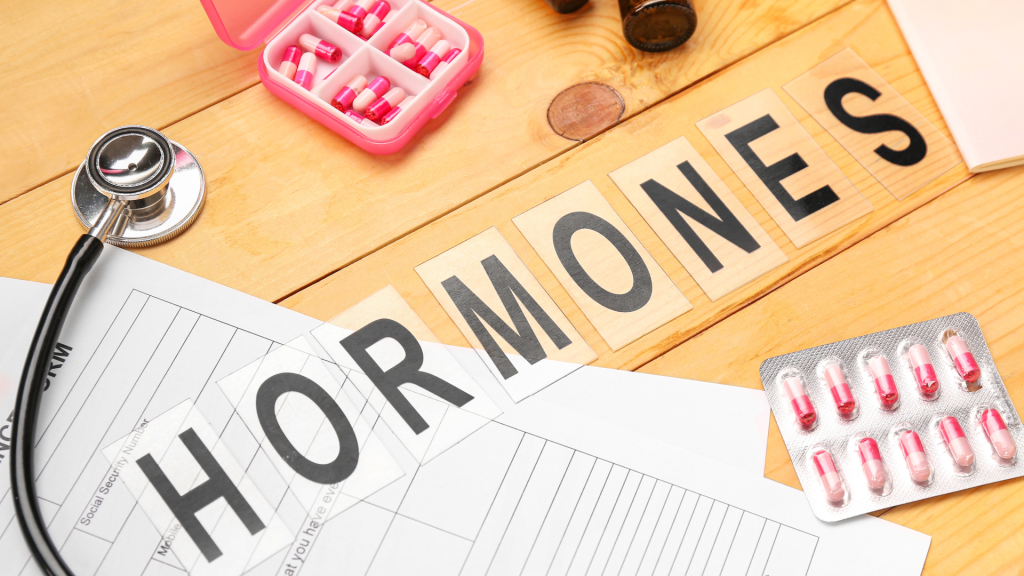Maintaining optimal hormone levels, whether through a healthy lifestyle or interventions such as hormone replacement therapy, can play a fundamental role in slowing down biological aging.
Estradiol, progesterone, and testosterone act as key modulators of oxidative stress, inflammation, metabolism, and epigenetic mechanisms. These effects, collectively, help preserve telomere length and maintain a youthful epigenetic profile.
Dr. Alfonso Galán – Neolife Medical Team
Sex Hormones and Biological Aging
Biological aging is a multifaceted process involving molecular, cellular, and physiological changes. At Neolife, we often define it as the accumulation of cellular damage that prevents cells from functioning properly. As a result, the tissues and organs they form may also fail, potentially leading to disease and deterioration.
This level of accumulated damage is something we can measure. Two key parameters are commonly used and assessed daily in our consultations: One way to measure biological age is by evaluating telomere length, and the other is through epigenetic patterns, such as “epigenetic clocks.”

Sex hormones, including estradiol, progesterone, and testosterone, play a crucial role in regulating various physiological processes related to aging. Scientific evidence suggests that maintaining optimal levels of these hormones not only impacts overall well-being and health—as we have extensively discussed—but may also delay biological aging by influencing oxidative stress, metabolism, mood, and cellular repair mechanisms.
Estradiol and Biological Aging
Estradiol is a key estrogen in premenopausal women, known for its antioxidant and protective effects on various tissues. Studies have shown that estradiol:
- Protects Against Oxidative Stress: Acts as a direct antioxidant by reducing free radicals and increasing the activity of antioxidant enzymes such as superoxide dismutase and glutathione peroxidase. This effect can protect telomeres from oxidation, preserving their length.
- Modulates Epigenetic Mechanisms: Estradiol regulates gene expression through its interaction with nuclear receptors, positively affecting aging-related epigenetic markers, such as DNA methylation. More about this here.
- Benefits the Cardiovascular System: Enhances vascular elasticity and reduces systemic inflammation, processes that indirectly impact telomere preservation and epigenetic stability.
Scientific Evidence:
- A study published in Menopause (2017) showed that postmenopausal women undergoing estrogen-based hormone replacement therapy (HRT) had significantly longer telomeres compared to those who did not receive HRT. In other words: younger biological ages.
- A longitudinal study in Nature Communications (2018) examined pre- and postmenopausal women, showing that those with higher estradiol levels had significantly longer telomeres.
Progesterone: A Regulator of Homeostasis and Aging
Beyond its reproductive role, progesterone (more about this here) acts as a modulator in the central nervous system and has anti-inflammatory and neuroprotective properties. Some of its key effects include:
- Reducing Inflammation: Progesterone decreases the production of pro-inflammatory cytokines such as TNF-α and IL-6. Chronic inflammation is closely linked to telomere shortening and epigenetic aging.
- Neuronal Protection: Studies in animal models have shown that progesterone can promote neuronal regeneration and protect against oxidative damage, contributing to cognitive health and slower brain aging.
- Impact on Metabolism: Progesterone improves insulin sensitivity and regulates energy storage, critical factors for maintaining a healthy metabolism and, consequently, slowing biological aging.
Scientific Evidence: A study in Aging Cell (2020) highlighted that balanced progesterone levels are associated with youthful epigenetic profiles in postmenopausal women, emphasizing its importance in preserving epigenetic marks.
Testosterone: Beyond Masculinity
Testosterone, predominantly found in men but equally important in women, is crucial for bone, muscle, and metabolic health. Its effects on biological aging include:
- Enhancing Metabolism: Testosterone increases muscle mass and reduces body fat, promoting greater insulin sensitivity and lower metabolic stress.
- Protecting Against Oxidative Stress: By regulating the expression of antioxidant genes, testosterone helps reduce oxidative damage in cells and tissues.
- Influencing Mood and Habits: Testosterone is linked to higher energy levels, motivation, and positive mood, which facilitates the adoption of healthy habits such as regular exercise and a balanced diet. These habits, in turn, positively impact telomeres and the epigenome. These lines are much more important than you may think. Your habits greatly impact your biological age and having your optimal Testosterone levels will make your will and drive greater and implementing good habits will be much easier and you will see the rewards of it much more…and sooner.
Scientific Evidence:
- A meta-analysis in the Journal of Clinical Endocrinology & Metabolism (2019) found that men with optimal testosterone levels had longer telomeres and lower aging-associated DNA methylation in key genes compared to those with hormone deficiency.
- A study published in Cell Reports (2021) highlighted how testosterone modulated epigenetic marks associated with aging, delaying the “epigenetic clock.”
Estrogen and Progesterone in Synergy
The balance between these two hormones is vital for successful and safe hormone replacement therapy. Their interaction is also crucial for healthy aging. For example:
- Antioxidant Synergy: Estradiol and progesterone together enhance antioxidant activity and reduce inflammation, promoting a more stable cellular environment.
- Impact on Telomere Length: In postmenopausal women, combined estrogen and progesterone therapy has been shown to prevent telomere shortening and maintain a youthful epigenetic profile.
- Neuroprotection: Both hormones contribute to brain health, reducing the risk of age-related neurodegenerative diseases.
Scientific evidence: An analysis in JAMA (2022) showed that combined estradiol and progesterone therapies in women not only improved cardiovascular and bone health, but also positively impacted molecular markers of aging.
Influence of Hormone Levels on Healthy Habits
Optimal sex hormone levels not only directly impact cellular mechanisms but also facilitate the adoption of healthy habits:
- Energy and Exercise: Healthy levels of testosterone and estradiol improve vitality and the willingness to engage in physical activity, a key factor for metabolic health and cellular longevity.
- Mood and Stress Management: Sex hormones modulate neurotransmitters such as serotonin and dopamine, improving mood and reducing chronic stress. This, in turn, protects telomeres and the epigenome.
- Weight Control: Proper hormonal balance promotes efficient metabolism, reducing the risk of obesity, a factor that accelerates biological aging.
Molecular Mechanisms: Telomeres and Epigenome
Telomere Length:
Telomeres, the repetitive DNA regions at the ends of chromosomes, shorten with each cell division. However, oxidative stress and inflammation accelerate this process. Sex hormones influence:
-
- Telomere Protection: By reducing oxidative stress, sex hormones directly protect telomere length.
- Telomerase Activation: Some studies suggest that estradiol can stimulate telomerase activity, the enzyme responsible for lengthening telomeres.
Epigenetic Modifications:
DNA Methylation: Adequate hormone levels are associated with a more youthful DNA methylation profile in key genes.
- Metilación del ADN: Niveles adecuados de hormonas están asociados con un perfil de metilación más juvenil en genes clave.
- Transcriptional Regulation: Sex hormones activate or silence genes related to inflammation, oxidative stress, and DNA repair.
Conclusions
Maintaining optimal hormone levels, whether through a healthy lifestyle or interventions such as hormone replacement therapy, can play a critical role in slowing biological aging.
Estradiol, progesterone, and testosterone act as key modulators of oxidative stress, inflammation, metabolism, and epigenetic mechanisms, collectively preserving telomere length and maintaining a youthful epigenetic profile.
Research in this field continues to advance, highlighting the importance of sex hormones in promoting health and longevity.
BIBLIOGRAPHY
(1) Barrett, E. S., & Swan, S. H. (2015). Stress and androgen activity during fetal development. Endocrinology, 156(10), 3435-3441. https://doi.org/10.1210/en.2015-1262
(2) Kyo, S., Takakura, M., Kanaya, T., Zhuo, W., Fujimoto, K., Nishio, Y., & Inoue, M. (1999). Estrogen activates telomerase. Cancer Research, 59(23), 5917-5921.
(3) Horvath, S. (2013). DNA methylation age of human tissues and cell types. Genome Biology, 14(10), R115. https://doi.org/10.1186/gb-2013-14-10-r115
(4) Stanczyk, F. Z., Chaikittisilpa, S., & Mishell, D. R. (2014). Hormones and aging: Clinical aspects of hormone replacement therapy. Endocrinology and Metabolism Clinics of North America, 43(4), 867-878. https://doi.org/10.1016/j.ecl.2014.08.001
(5) Mousavi, S. A., Jasemi, M., Mousavi, S. A., & Naghizadeh, M. M. (2020). The effect of testosterone replacement therapy on telomere length: A systematic review and meta-analysis. Journal of Clinical Endocrinology & Metabolism, 105(3), 781-789. https://doi.org/10.1210/clinem/dgz211

